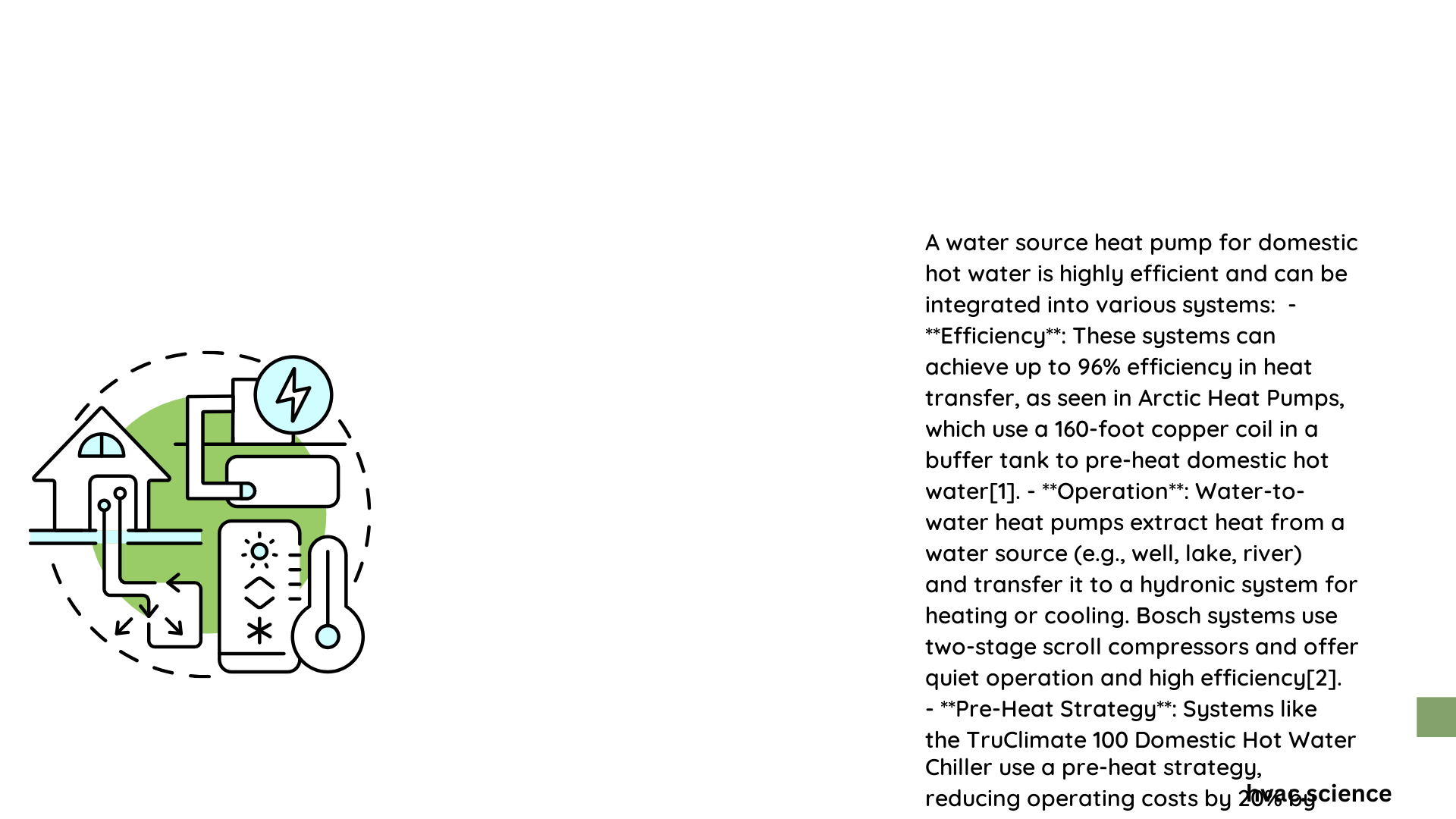Water source heat pumps represent a cutting-edge solution for domestic hot water production, offering homeowners an innovative method to generate hot water with remarkable energy efficiency. By extracting thermal energy from water sources, these advanced systems provide sustainable heating while significantly reducing electricity consumption and environmental impact, making them a smart choice for modern, eco-conscious households.
What Makes Water Source Heat Pumps Unique?
Water source heat pumps leverage the stable temperature of water sources like groundwater, lakes, or wells to generate domestic hot water efficiently. Unlike traditional water heating methods, these systems transfer heat rather than generate it directly, resulting in exceptional performance.
How Do Water Source Heat Pumps Work?
Water source heat pumps operate through a sophisticated heat transfer process:
- Heat Extraction
- The system draws thermal energy from a water source
- Uses a refrigerant to absorb and concentrate heat
-
Transfers extracted heat to domestic water supply
-
Heat Transfer Mechanism
- Refrigerant circulates through specialized heat exchangers
- Compresses and expands to enhance heat transfer efficiency
- Maintains consistent hot water temperature
Performance Metrics and Specifications

| Model | Heating Capacity | COP | Temperature Range |
|---|---|---|---|
| CGS-9 | 10 KW | 5.25 | -10°C to 35°C |
| CGS-12 | 15 KW | 5.22 | -10°C to 35°C |
| CGS-18 | 18 KW | 5.23 | -10°C to 35°C |
What Are the Key Advantages?
Energy Efficiency
- Coefficient of Performance (COP) ranges from 5.22 to 5.25
- Generates 5.22 to 5.25 units of energy per electricity unit consumed
- Significantly lower operational costs compared to traditional systems
Environmental Benefits
- Reduces carbon footprint
- No direct fossil fuel consumption
- Utilizes renewable thermal energy sources
What Are the Installation Considerations?
Cost Breakdown:
– Equipment: $5,000 – $20,000
– Labor: $2,000 – $5,000
– Permits and Modifications: $500 – $3,000
– Total Estimated Investment: $7,500 – $30,000
How Much Can You Save?
Homeowners can expect substantial long-term savings:
– 20-40% reduction in water heating expenses
– Potential federal tax credits up to 50% for qualifying installations
– Lower maintenance costs compared to traditional systems
What Maintenance Is Required?
Annual Maintenance Checklist:
– Inspect refrigerant lines
– Clean air filters
– Verify water flow rates
– Check system pressure and performance
– Estimated maintenance cost: $200 – $500 per year
Conclusion
Water source heat pumps for domestic hot water represent a sophisticated, efficient, and environmentally friendly heating solution. By understanding their mechanics, benefits, and potential savings, homeowners can make informed decisions about adopting this innovative technology.
